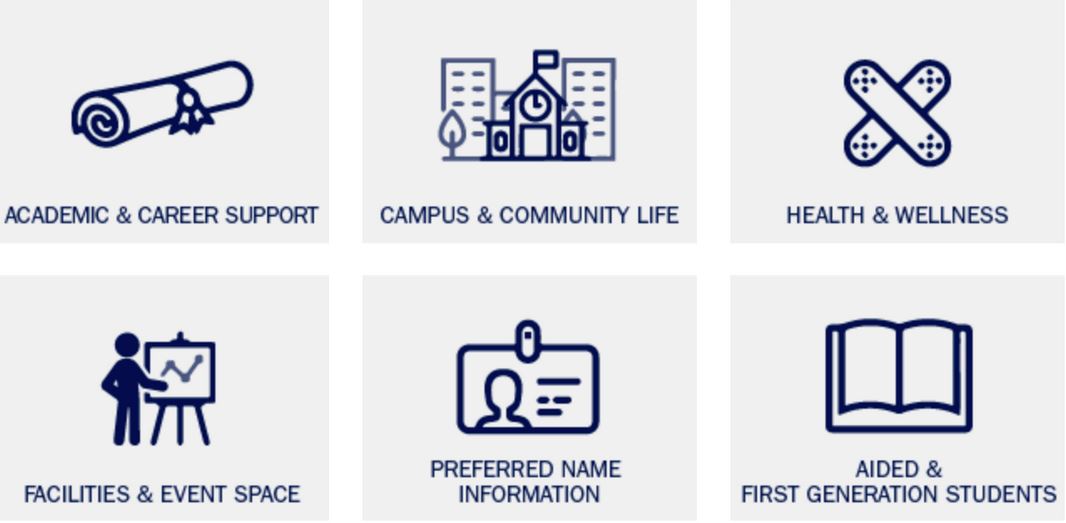Hello Folks! We’re coming up to that time of the year again. With the end of the Spring semester in sight, we’re ramping up for our last mid-terms, formalizing and consolidating major projects, and looking ahead to Reading Days and Finals.
Wait a minute, why is Weingarten asking me to Stop, Pause and Reflect when I’m just ramping up, building momentum, and taking the leap?
That’s right! WE CARE ABOUT YOU! Being a critically reflective and conscientious student, professional and human being calls us to slow down, reflect and make the necessary adjustments. Today, we’re reflecting on how to build an INTENTIONAL SUPPORT INFRASTRUCTURE for ourselves and others! Regardless of where you are in your PENN program, whether you’re a first-year undergraduate or advanced post-doctoral or professional student, building an intentional support infrastructure is ESSENTIAL to your SELF-CARE. We underline the term, intentional, because intentionality fosters change and growth.
Every member of the PENN community comes from different and unique walks of life. Some of us have had superb, built-in support infrastructures in the past. If that applies to you, perhaps the support sought you out and you didn’t even have to look for it. Others may have had to be more self-supportive and independent while being selective about identifying and seeking supports and guidance from others. Now, we’re all at PENN, and things may look a little bit different, and/or your personal predicament may have changed a little or a lot.
At Weingarten, we want to emphasize that it is not about academic achievement solely, but about personal growth, and developing essential and healthy life skills that will take you beyond your immediate academic career and support you in your life beyond PENN.
So, what does it mean to build an intentional support infrastructure?
- First, acknowledging that you cannot do it all alone, that you need an intentional community, and that part of being a successful individual is to be able to identify and optimize what your support resources are. The idea of the self-sufficient Ivy League student operating out of a figurative island is a myth!
- Check out our PENN FACES website and program for real stories of successes and failures, ups and downs, hardships, self-discoveries, and resilience!
- There is no SHAME in asking for HELP! In fact, we encourage vulnerability, honesty, transparency & candidness! Check out Brené Brown’s TEDxHouston’s talk: The power of vulnerability.
- Second, accepting that you’re a unique individual and that your identity, background, needs, experiences, circumstances, and contexts are different than others. Push out those old, self-defeating thoughts, “everyone else is doing it… everyone else seems to be handling it fine… I don’t want anyone else to know what I’m really going through…”
- Instead, try these validating affirmations:
I am enough…
My needs are essential for my growth…
I will seek out support and utilize resources available to me with agency, confidence and hope…
I will consider ways in which services and resources enhance and strengthen my own gifts, talents and strengths.
- Third, take an inventory of the resources available to you at PENN (and beyond).
- Fourth, be open and flexible to the fact that how you may have previously accessed and utilized support resources and services may be different than how you may need and experience them now and in the future. Give it a try! And if it doesn’t work the first time, try again differently! Also, you may need to combine a particular set of services and resources for a particular goal, need, situation or time in your life, so take a creative and hybrid approach to how you build your own, customized and intentional support infrastructure!
- Fifth, offer your support to others. At a time when everyone is so busy and technology often masks the reality of people’s lives, reach out the be there for someone else, make time, offer your empathy and understanding, and take action where appropriate and consented. Helping others will elevate and strengthen your own intentional network of support.
So, next time you look ahead and/or introspectively before you charge ahead with actualizing and executing your goals, projects and paths, make sure that you have also take account of the very intentional support infrastructure that you’ll need to inspire, fuel, accompany, scaffold and/or intervene – so that the quality of your trajectory will be a successful one, regardless of outcomes. You may begin by asking:
- Who will be my study/project partner?
- Who will give me moral support?
- Who will be my accountability partner?
- Who will I go to for inspiration?
- Who will I go to for consultation, advice, and/or mentorship?
- Who will I turn to for technical support?
- Who can I go to if I struggle?
And remember, our doors, hearts, and support resources are always open and available for you at Weingarten. Come check us out!
By Staff Writer: Min Derry, Learning Specialist and Research Fellow

